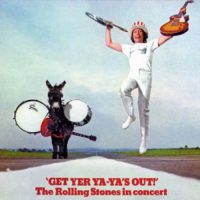The Greatest Live Rock and Roll Albums Ever
Rolling Stone has a readers poll on the greatest live rock and roll albums of all time. The article is here. The list is as follows:
1) The Who “Live At Leeds”
2) Allman Brothers “Live at the Filmore East”
3) Peter Frampton “Frampton Comes Alive”
4) Rolling Stones “Get Yer Ya Yas Out”
5) Kiss “Alive”
6) Deep Purple “Made In Japan”
7) Little Feat “Waiting For Columbus”
8) Nirvana “MTV Unplugged in New York”
9) The Band “The Last Waltz”
10) Bob Seger “Live Bullet”
I am kind of shocked, completely shocked, that I agree with most all of the list. It is really good. First off, and this is a positioning quibble, so not that important, but I think the Stones “Get Yer Ya Yas Out” is the greatest live rock and roll album ever, not the fourth best.
I would not have Frampton Comes Alive on my list. It was unquestionably one of, if not the, best selling and most popular live albums in history; but it was not musically that great of shakes. In its place I would unquestionably put “Full House” by the J. Geils Band (anybody who leaves this off of their list is either nuts or doesn’t know the album).
Secondly, “Alive” by Kiss is actually pretty great in a way. But I would replace it with “Live At The Apollo” by James Brown. Other than that, Rolling Stone’s list is darn good.
Here are five Honorable Mentions that are so good, it is a crime they are not listed:
Jefferson Airplane “Bless Its Pointed Little Head”
Bob Dylan “The Royal Albert Hall Concert”
Lou Reed “Rock and Roll Animal”
Derek And the Dominoes “In Concert”
Thin Lizzy “Live and Dangerous”
Well, those are my thoughts. What are yours? This is a open for any purpose music discussion thread, just with emphasis on live rock.

